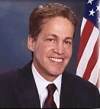Three Upper Midwestern US Senators Publicly Oppose Bush’s New Iraq Strategy
Less than 12 hours after President George W. Bush’s address to the nation revealing his new strategy for victory in Iraq—a strategy that included sending more than 21,000 new troops to the region—three Upper Midwestern senators have expressed public disapproval of the President’s plan.

In a press release, Junior Wisconsin Senator Russ Feingold stated the President’s decision “ignored the recommendations of members of both parties, military leaders, foreign policy experts, and the will of the American people by announcing that he intends to escalate our involvement in Iraq by sending more troops there.” Feingold also called for more congressional intervention to help end the Iraq War which he deemed “one of the greatest foreign policy mistakes in the history of our nation.”

While Feingold has long been against the war in Iraq, some of Bush’s more noteworthy critics have come from within the Republican Party. Senior Minnesota Senator Norm Coleman also quickly stated his opposition to the escalation in troops to the region: “I disagree with the President’s decision to provide a troop surge in Baghdad. My concern about a troop surge is compounded by the impact it will have on Minnesota National Guard troops in Iraq and their families here at home. I am extremely disappointed by the news that our National Guard soldiers in Iraq will have their tour of duty extended.”

Wisconsin’s senior Senator, Herb Kohl, chose a less dramatic tone than Feingold, but also stated Bush was acting “Against the advice of many of his senior commanders, the Iraq Study Group, and a clear majority of the American people.” Kohl added that “the Iraqis need to take responsibility for their own security. Our soldiers have been stretched to the breaking point, and we can’t afford an escalation of our commitment in Iraq.”
As of Thursday morning, Upper Midwestern Republican Senators John Thune (SD) and Charles Grassley (IA) had not yet released a statement in defense of (or opposition to) the President’s action.
